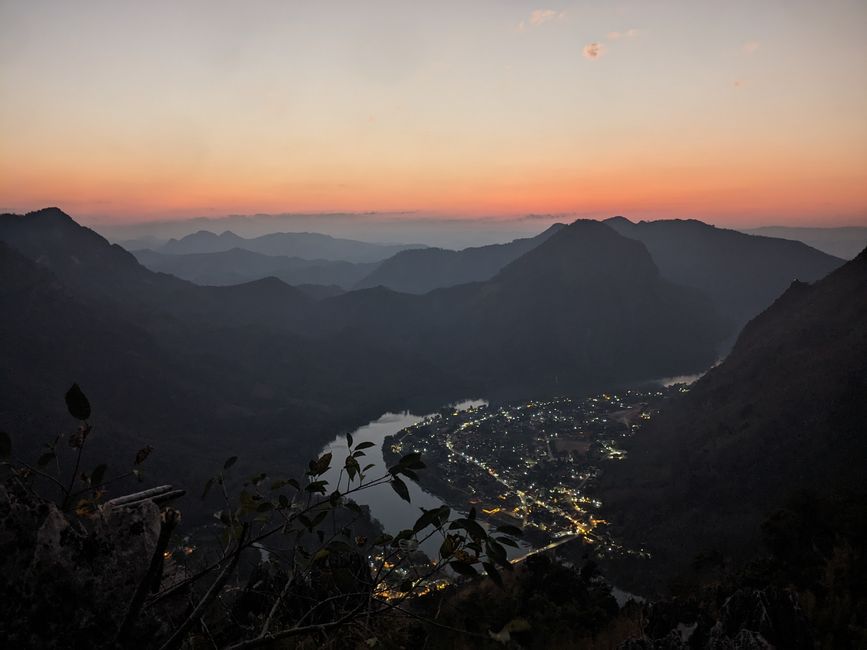The twentieth (!) week
شائع شدہ: 25.02.2024
Day 135-142
Yesterday we sat or crouched in the boat almost all day. Today, February 19th, we don't want to sit. We had breakfast and Ivar went back to bed for the siesta.
I didn't want to. Since the village of Nong Khiaw is separated by a river and we were only on one side of the village yesterday, I went over the bridge and looked at the other side of the village. There is also the Pha Noi cave. This is where the residents of Nong Khiaw hid when the bombs fell.
The cave is very small and has a huge, deep hole. And it's not lit. If you don't have light, it can be very dangerous.
I picked up Ivar and we went to a viewpoint up to 700 meters. My goodness, that was exhausting!!! We arrived in time for sunset. It was wonderful! The way back was also very exciting because it was dark! But we had our lamps with us. The moon shone brightly, allowing us to turn off the lamps in unforested sections of the trail.
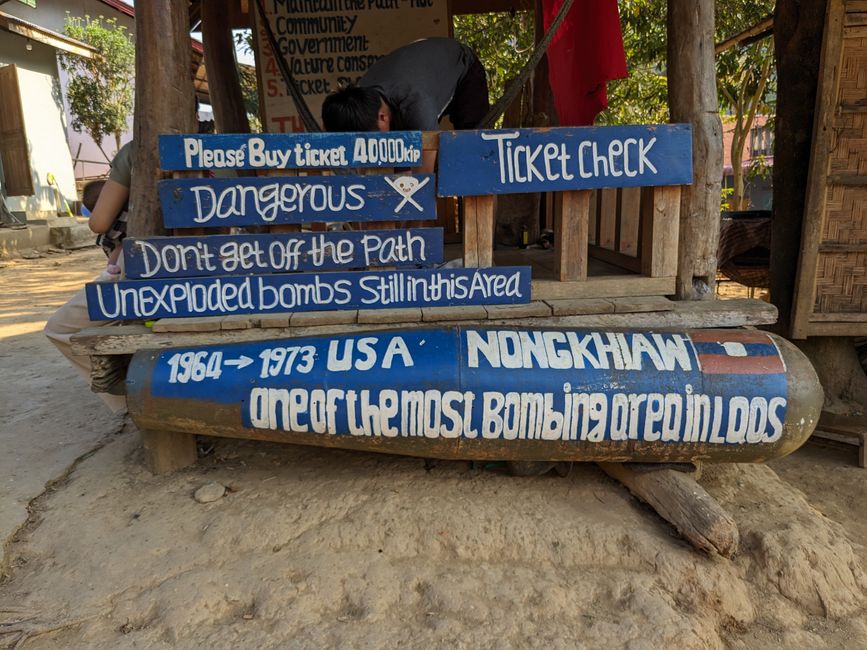
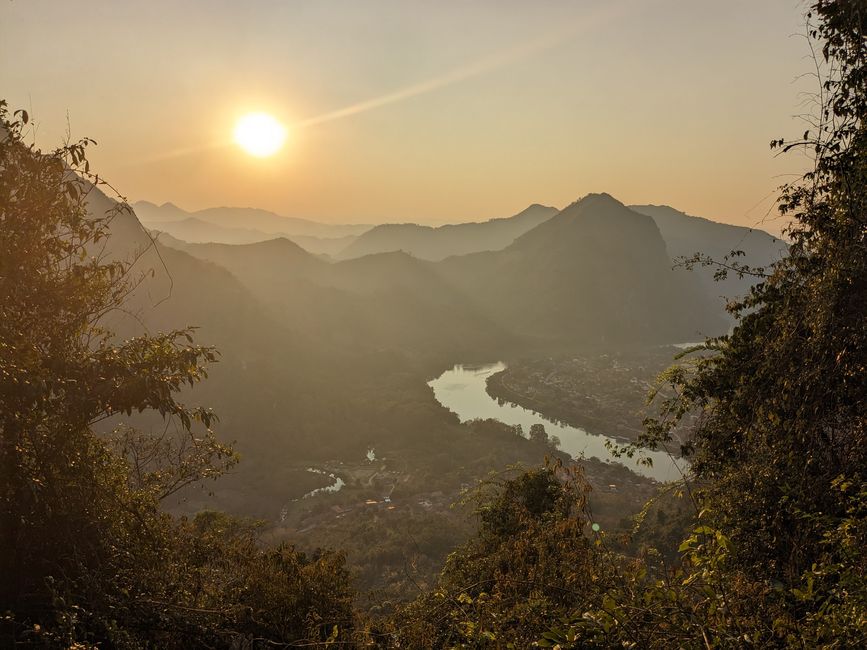
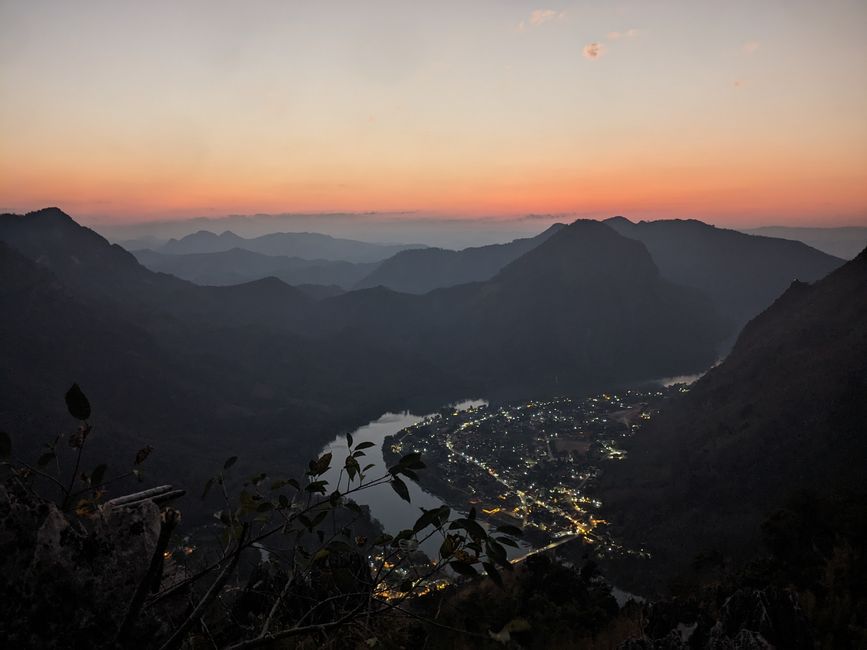
The next day we met 2 Austrians who were also in the boat with us. We chatted for a very long time. They gave us ideas that I will report on soon. In any case, we spent a lot of time researching.
Later in the afternoon we went to another lookout. My legs are just a little sore from yesterday.
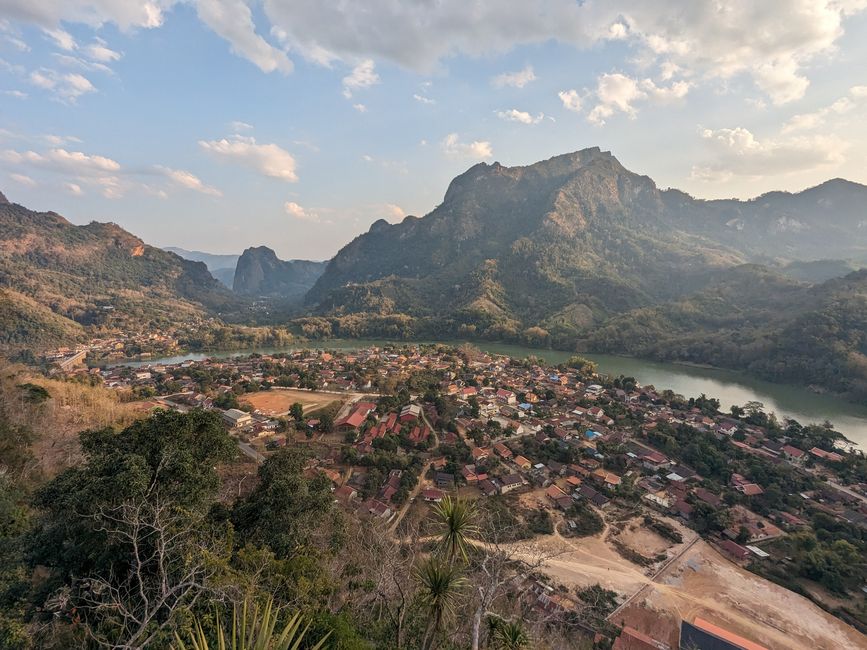
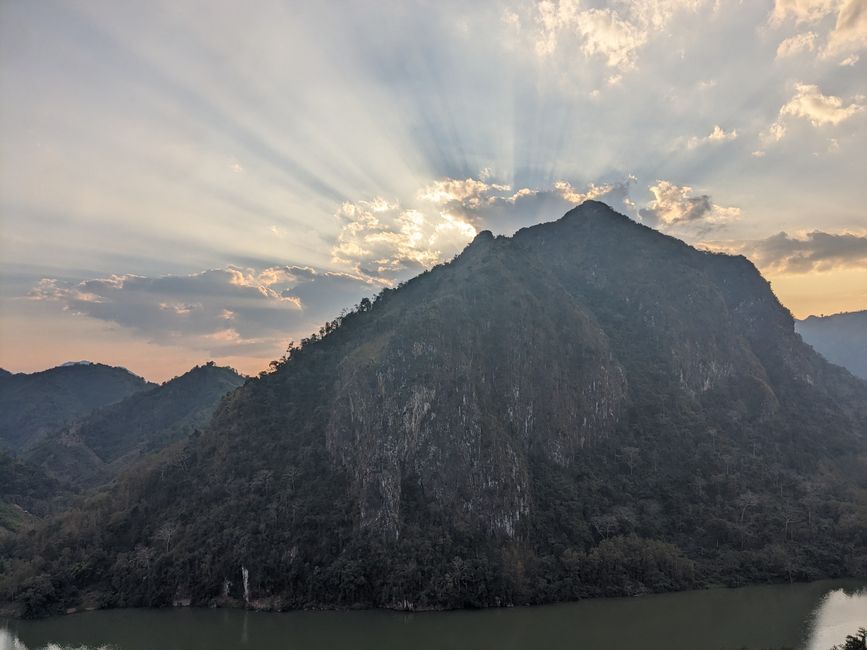
February 21st we spent a lot of time on the water. We rented a kayak and went up the Nam Om. At the beginning we drove quite a few serpentine lines because we couldn't figure out how to steer. This way you can also see something of the world!
After about two hours of paddling, we got the hang of it and were mostly going straight. We discovered a small beach and a monastery behind a few palm trees. We got out and looked at the village. We also bought drinks which we drank on the beach.
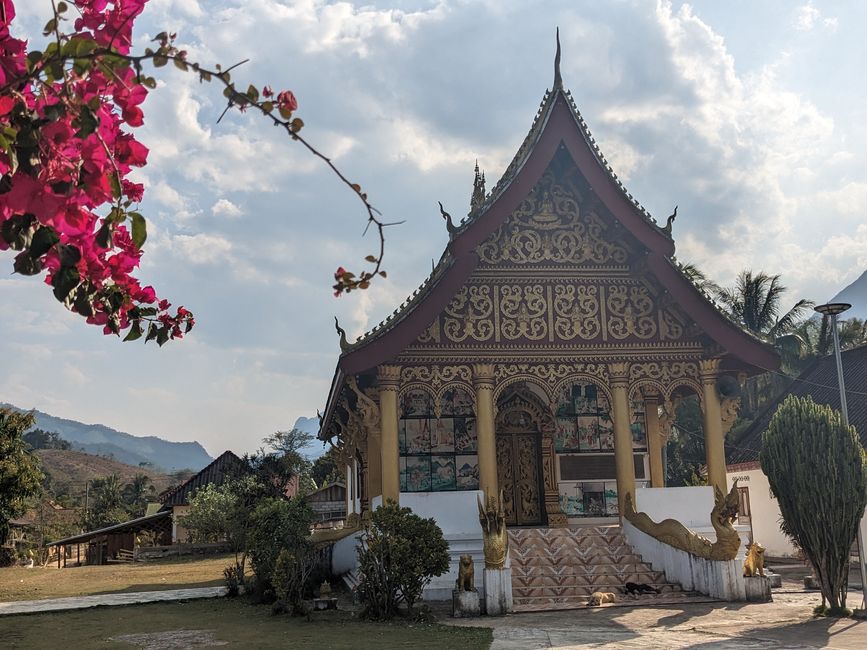
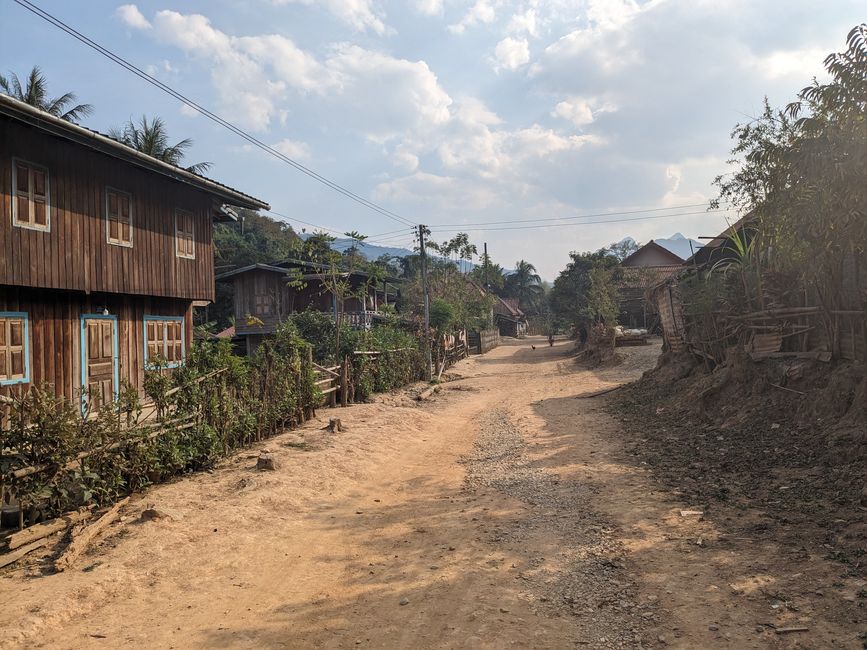
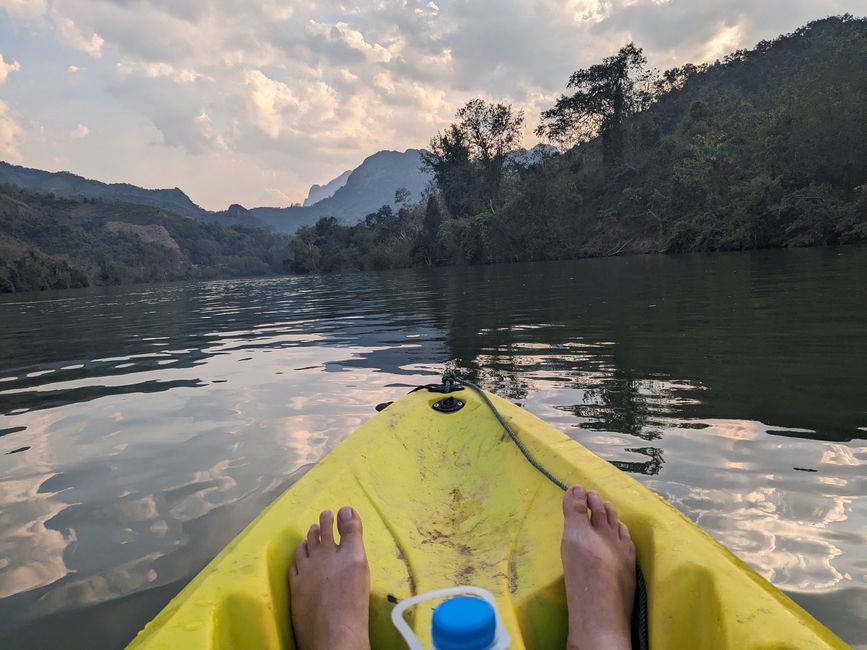
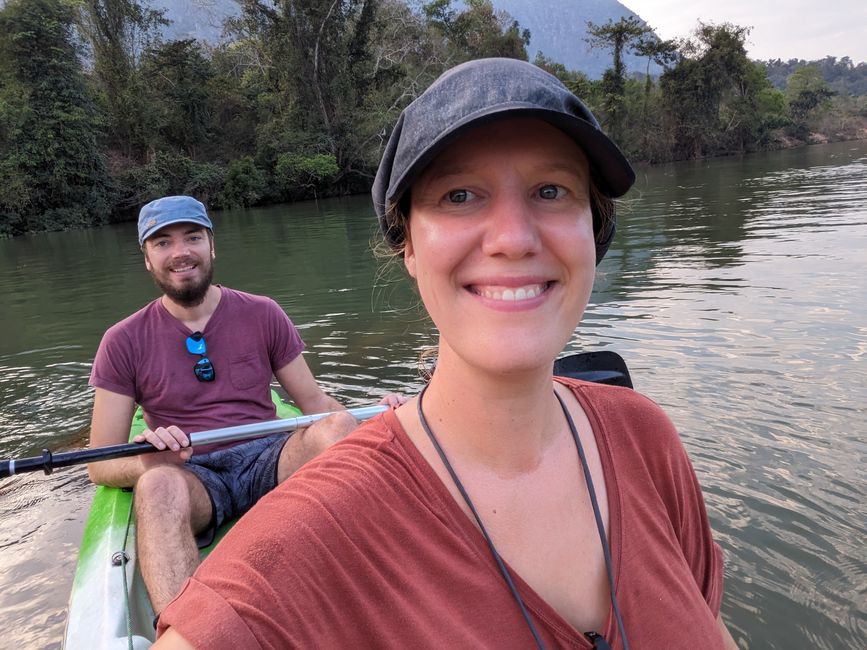
Back in Nong Khiaw our arms and shoulders were aching good! Man, with so many people sitting on scooters, we've become complete idiots!
On February 22nd we took the bus to Luang Prabang. This is said to be the most beautiful city in Asia and is a world heritage site. We borrowed bikes from our accommodation and rode into town. We sat by the Mekong and watched the sunset. We also drank various beers from Beerlao.
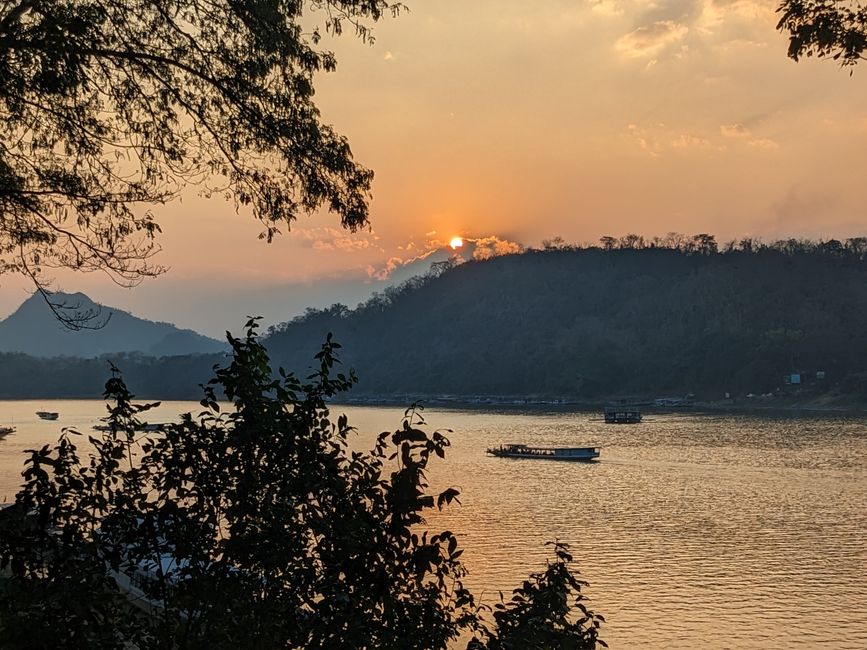
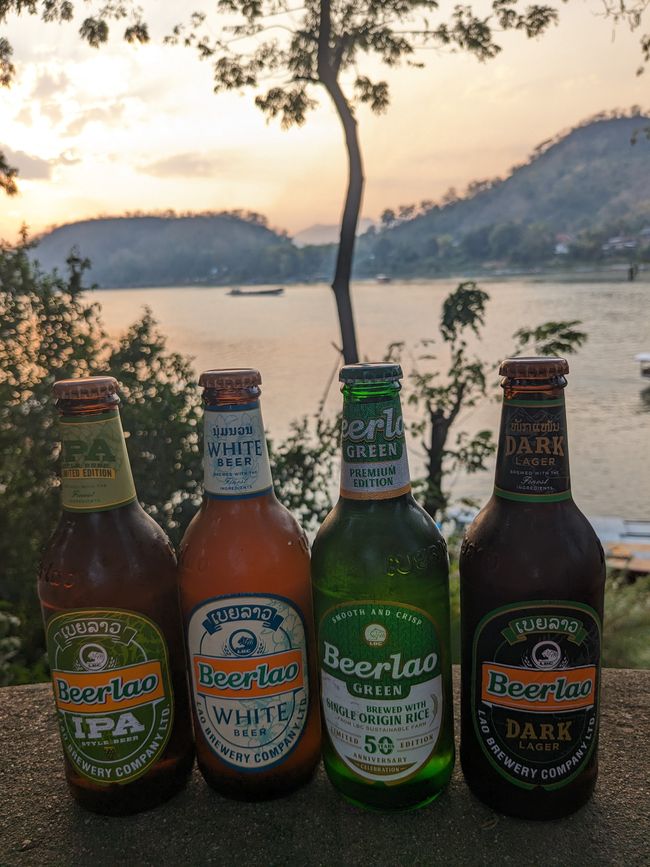
The next day we did some real sightseeing. First we went to the UXO Lao Visitor Center. UXO stands for unexploded ordnance. As already mentioned, Laos was heavily bombed by the USA. The main reason was the Ho Chi Minh Way, a supply line for the North Vietnamese. The United States has long denied the bombing. However, Laos is the most heavily bombed country in the world!!
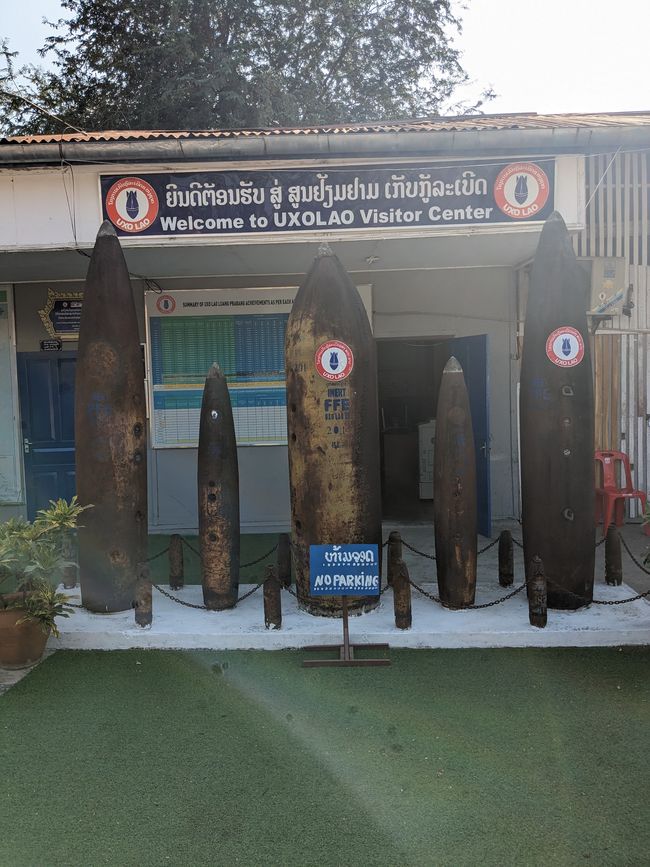
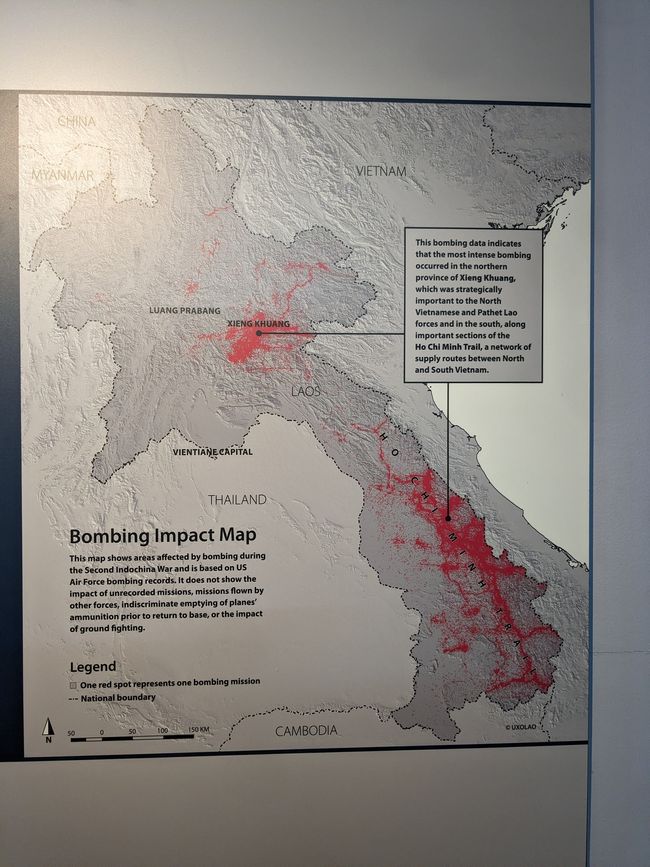
So-called cluster bombs were particularly used. The cluster bomb is filled with many small bombies. In flight the shell opens and all the little bombies scatter. The bombies have enough explosive power to kill or at least seriously injure people within a radius of 30 meters. Many of the small bombies did not detonate and are still lying around. Children in particular find the small, round, shiny balls interesting...
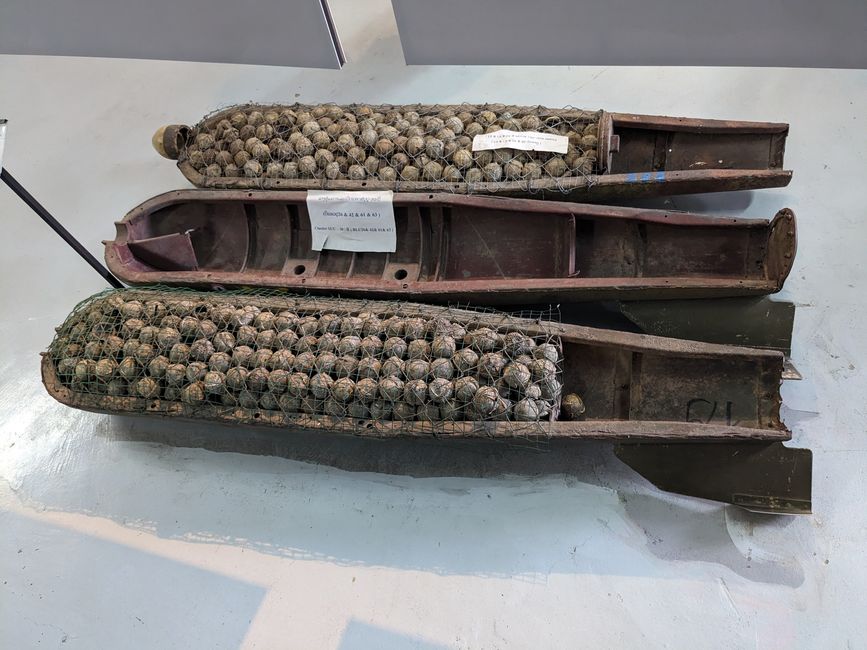
But it is also very dangerous for farmers because they do not know whether there is an image walker in their rice field, but they have to cultivate the field in order to be able to feed their families. And about 80% of Lao people are farmers.
UXO Lao checks areas, uses metal detectors to look for unexploded bombs and defuses them. It also teaches the children in the villages, for example, with puppet shows.
After all this terrible information we moved on to something more peaceful: we visited 2 temples. The Wat Sensoukharam and the Wat Xieng Thong.
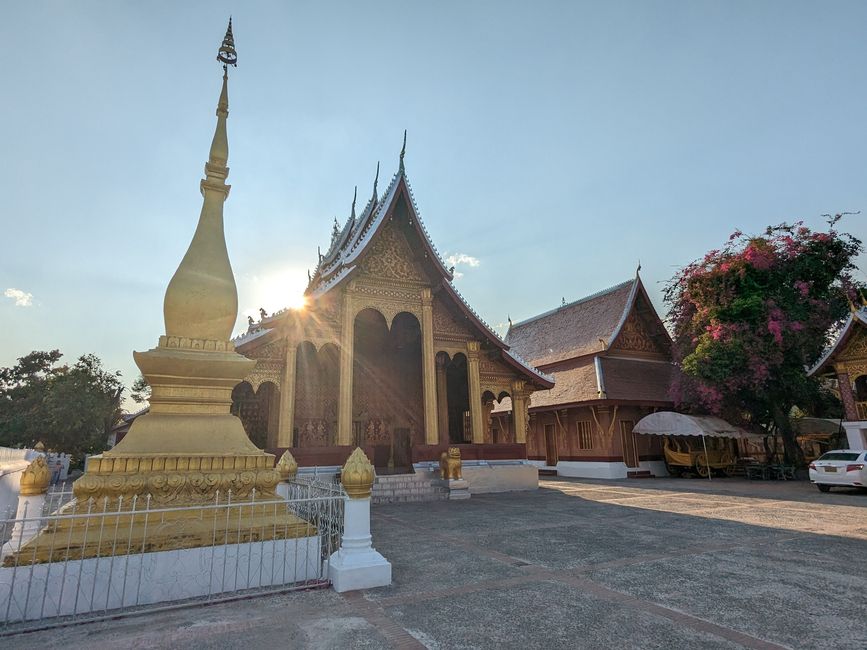
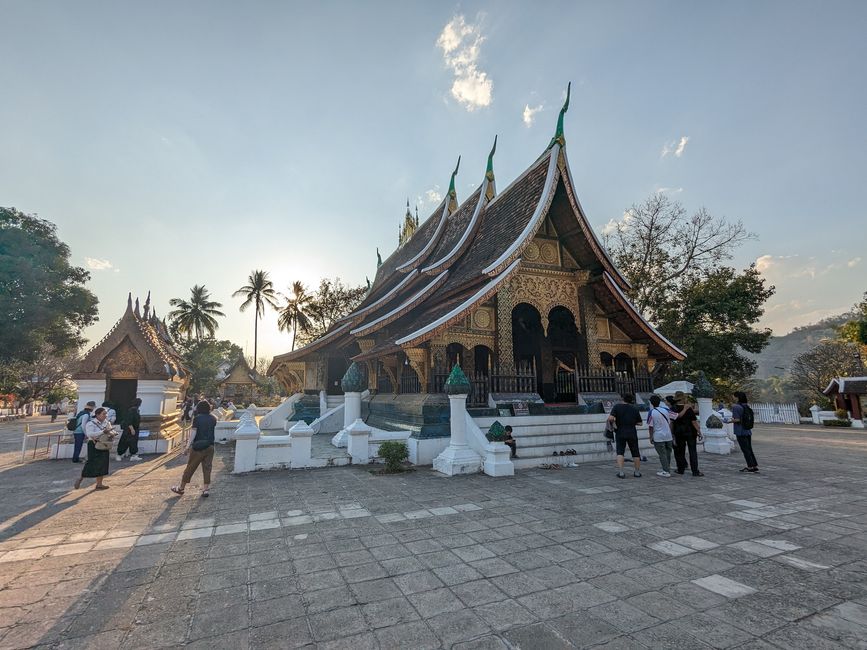
The last-mentioned temple is the more beautiful, as the outer walls are decorated with beautiful, colorful, shiny glass mosaics. Religious and everyday depictions are depicted.
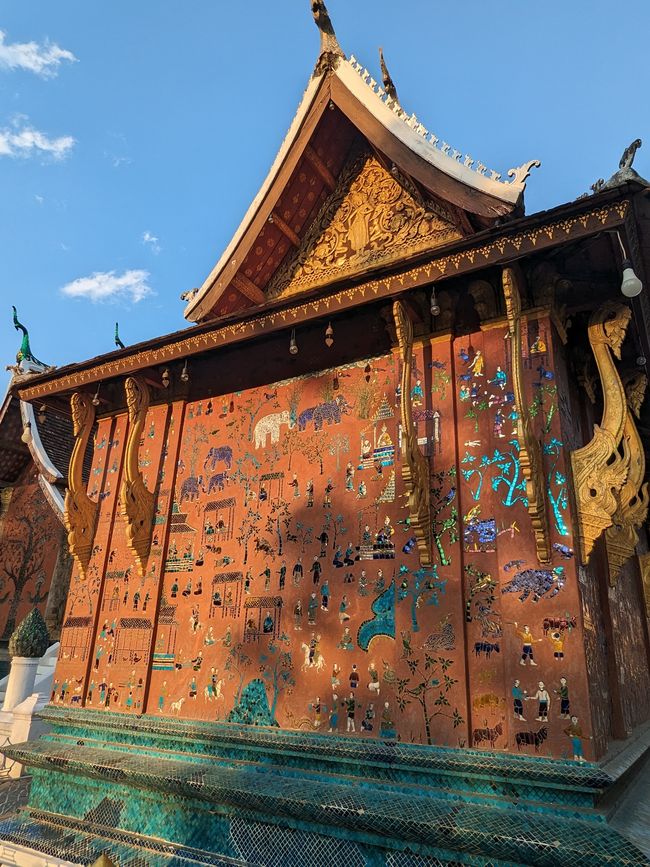
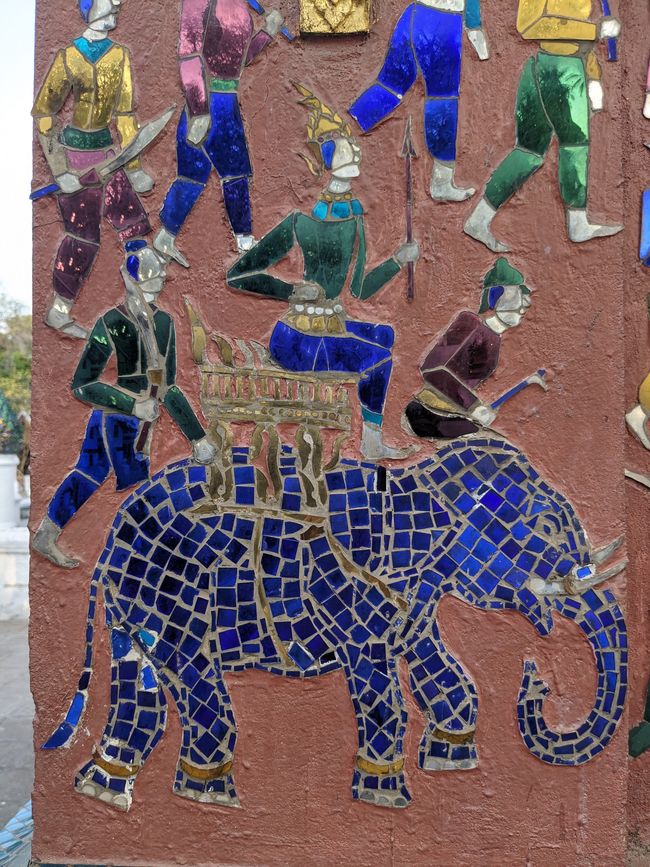
Afterwards we went to Phousi Hill, a hill in the middle of the city. Many people come here to watch the sunset. We happened to be there at sunset and it was super crowded!
We walked away from all the hustle and bustle and looked down at the city. A slightly older couple took a photo next to us and Ivar stuck his head in the photo just in time. So we got into conversation with two very nice people. You are Burmese (Myanmar) but have lived in the USA for over 40 years. We chatted for a long time about developments in Myanmar.
On February 24th We rented a scooter and went to Kuang Si Waterfall. The parking lot was already full of cars and scooters, so we lost a little of the fun at the waterfall. We bought a ticket, were put on an e-scooter and driven to the park entrance.
From there you walked alone. First came a bear rescue center for collared bears (also known as moon bears or Asiatic bears). Unfortunately, in Chinese medicine, bear bile is said to have healing properties. This healing effect can now also be produced in laboratories, but so-called bear farms still exist. The bears live in small cages and are almost immobile. Bile is regularly withdrawn using a catheter. Over years. Terrible.
So it's no surprise that one of the rescued bears was walking a bit strangely. Living in a cramped cage for years can cause your musculoskeletal system to suffer. Luckily we arrived on time for the feeding and were able to watch as the bears searched their enclosure for delicacies.
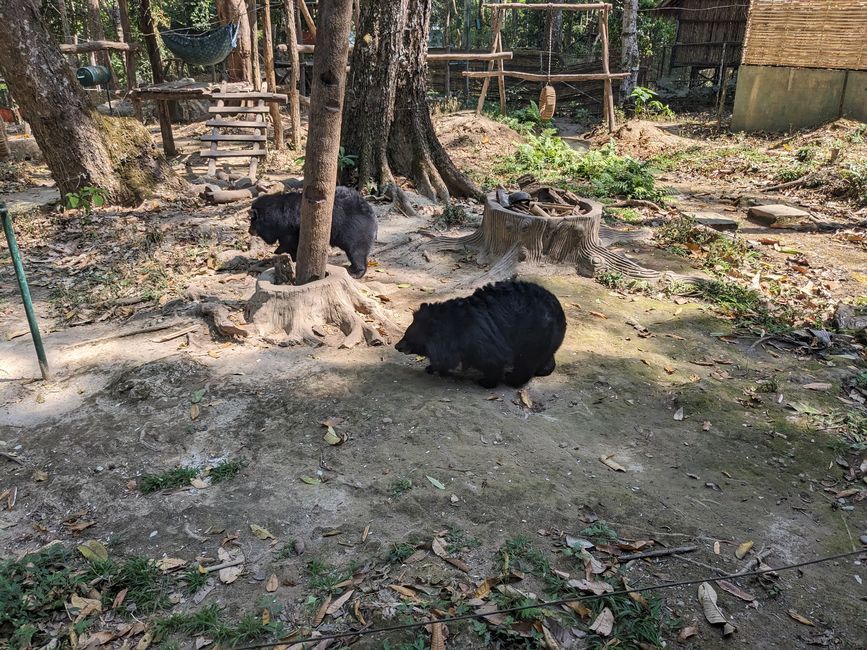
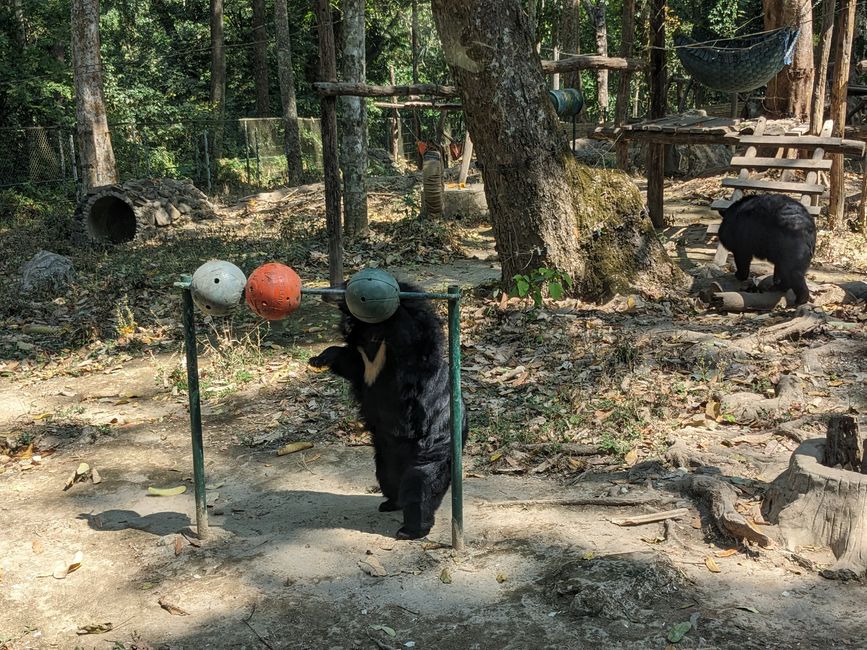
Soon we came to the first steps of the waterfall. The water is turquoise because it flows over clay stone and dissolves the calcium. Below the waterfall there are pools where you can swim. We walked along a dirt path (and were suddenly away from the crowds) up to the waterfall. There we followed further up, to the plateau where the water begins to fall. There is a river there with little current. At first we just kept our feet clean and immediately fish arrived and nibbled on us. That was funny! Soon we were completely in the water and many a fish were nibbling on our stomachs or legs.
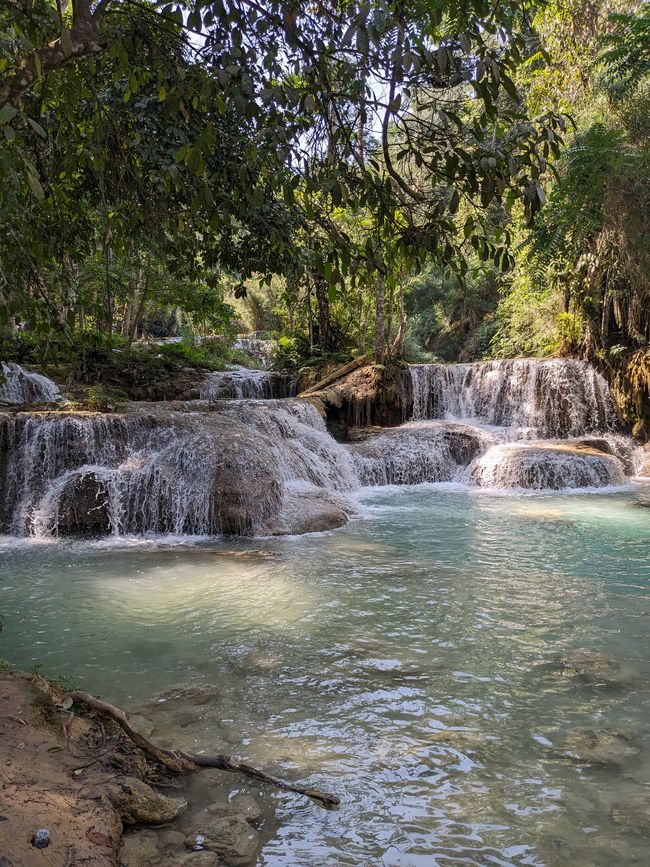
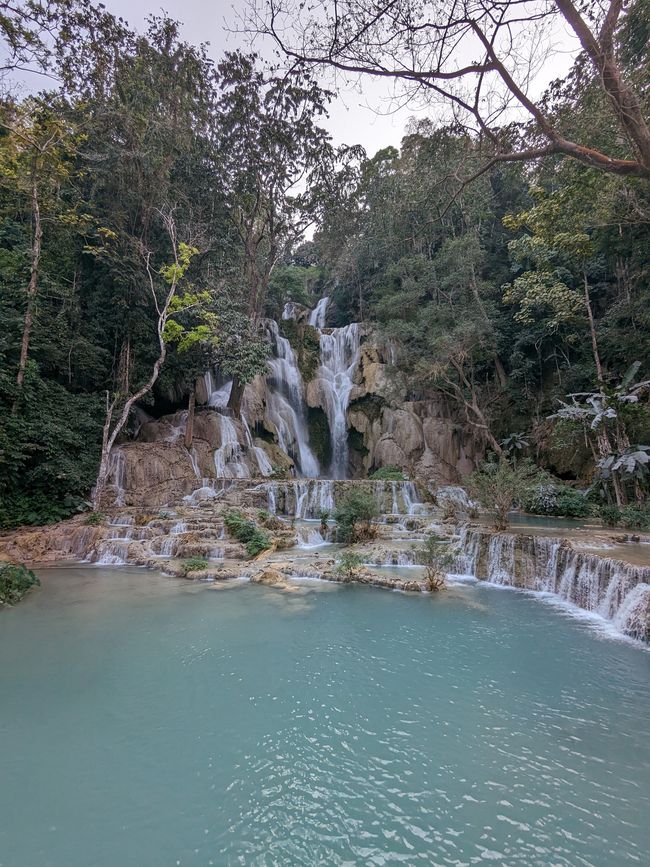
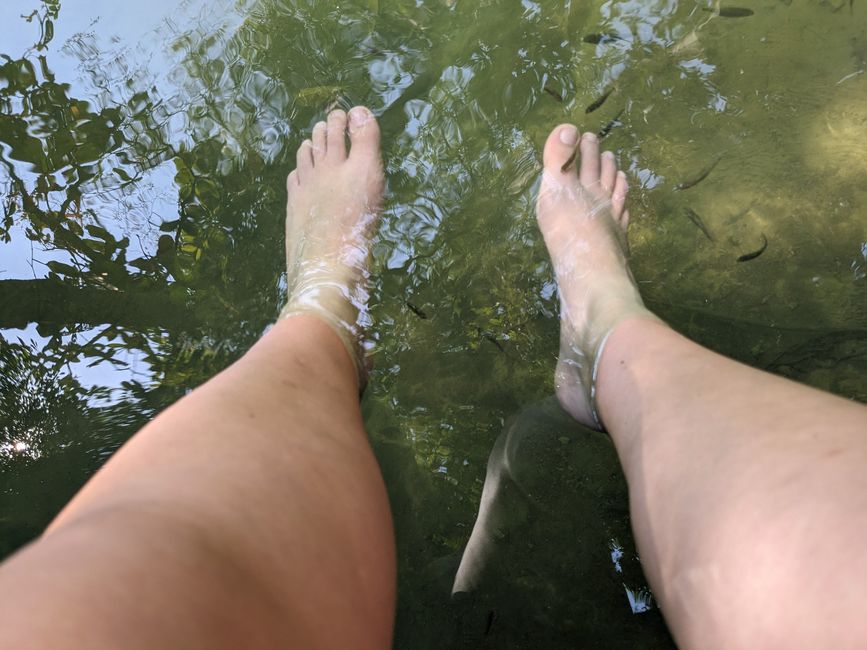
We walked another 3 km to the source of the river. It was wonderfully quiet, peaceful and the water was clear! So we went swimming again.
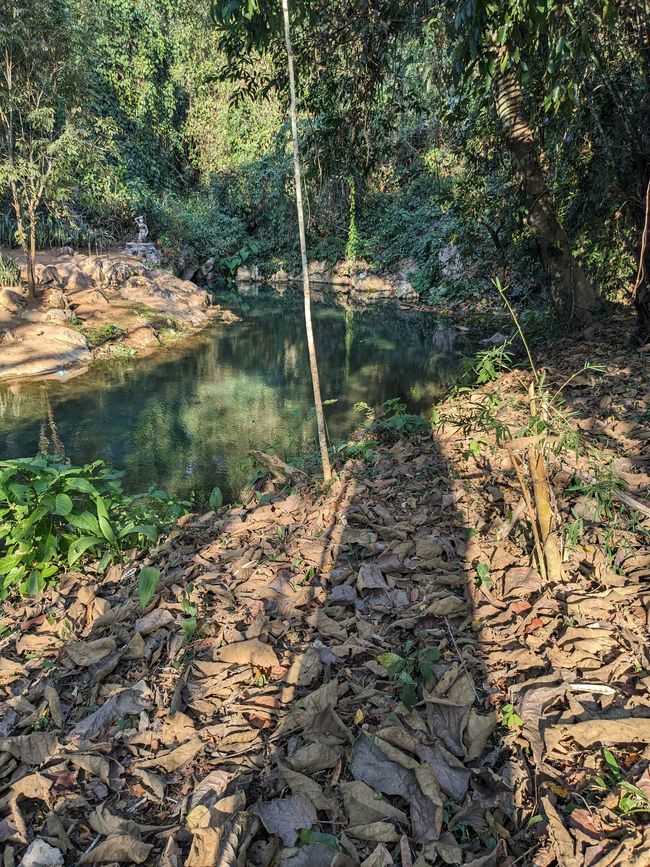
On the way back we passed the waterfall again. Since the park was already closed, we had the waterfall to ourselves.
On February 25th we did a Rice Experience Tour. On a farm, we were shown the entire steps from selecting the seeds, sowing, preparing the rice field using plow, taking the cuttings, inserting the cuttings into the rice field (yes, the rice grains are not sown directly on the rice field), over 4 months every 3 days add new water to the field, pull weeds, harvest, let it dry, knock rice grains from the dry branches, separate rice grains from the rice husks, cook and eat. A lot of work!
We were allowed to help, although I don't know whether we were a good help.
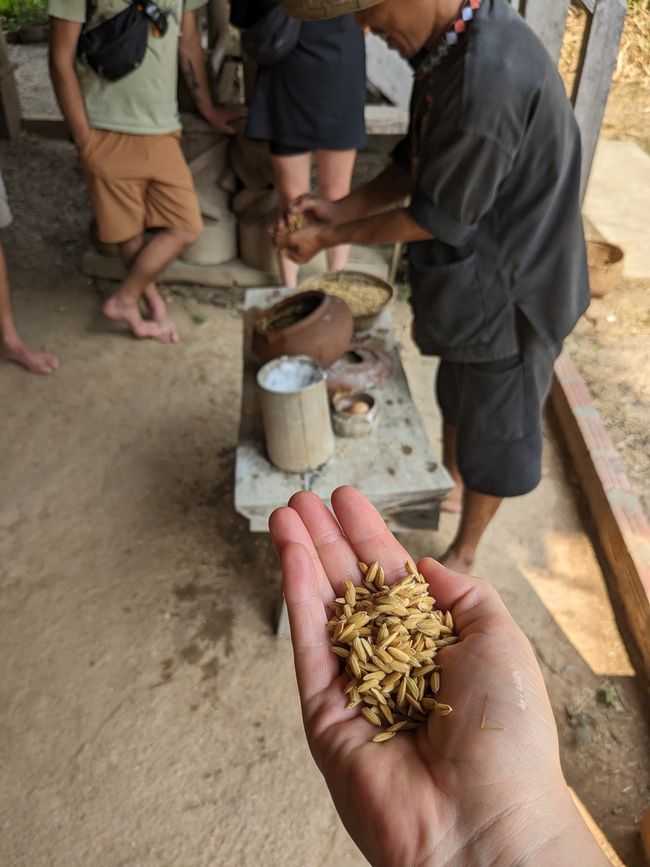
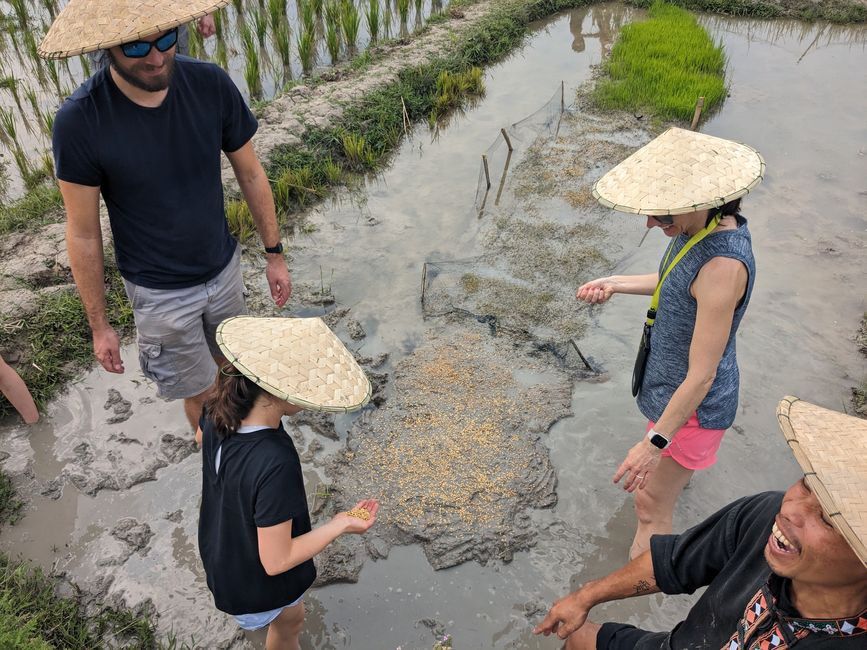
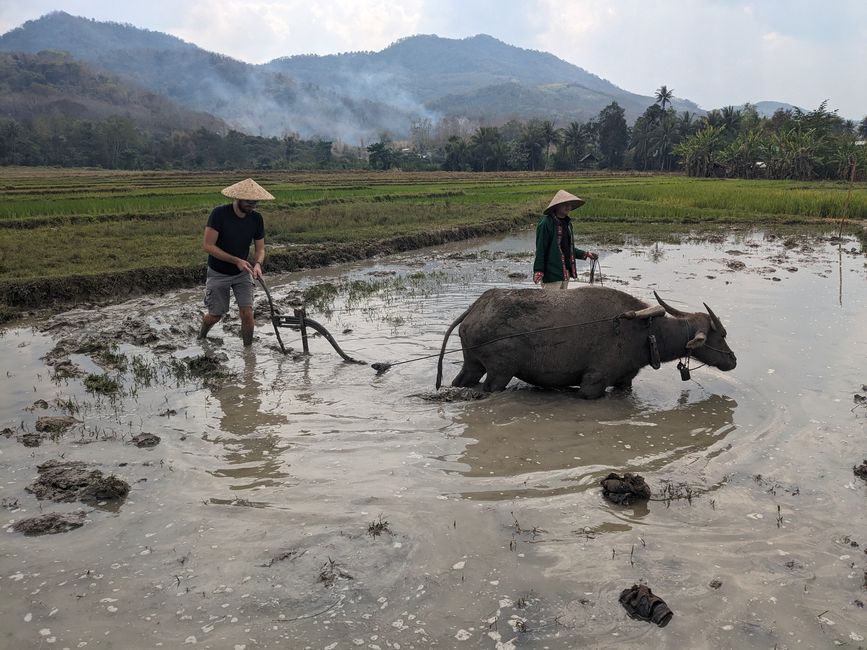
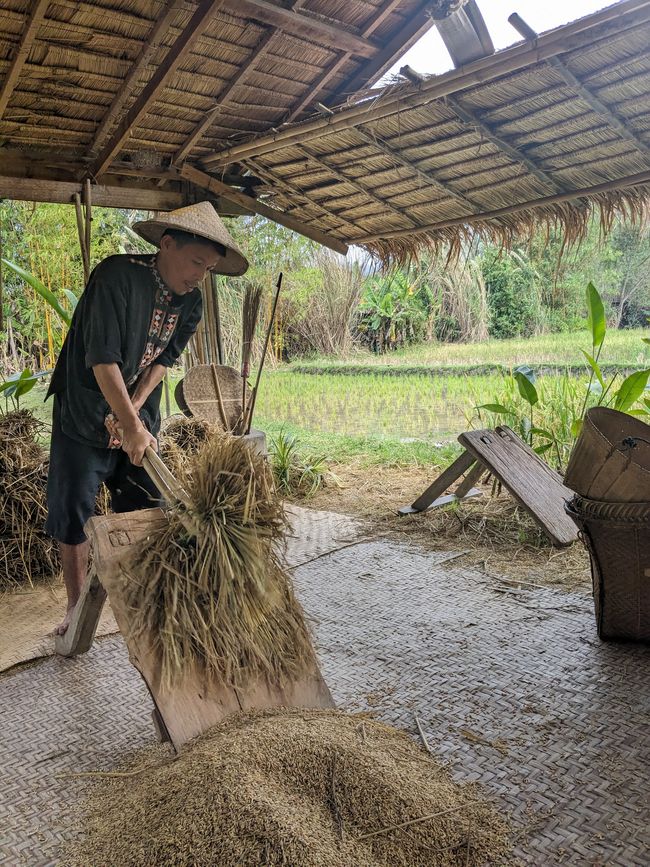
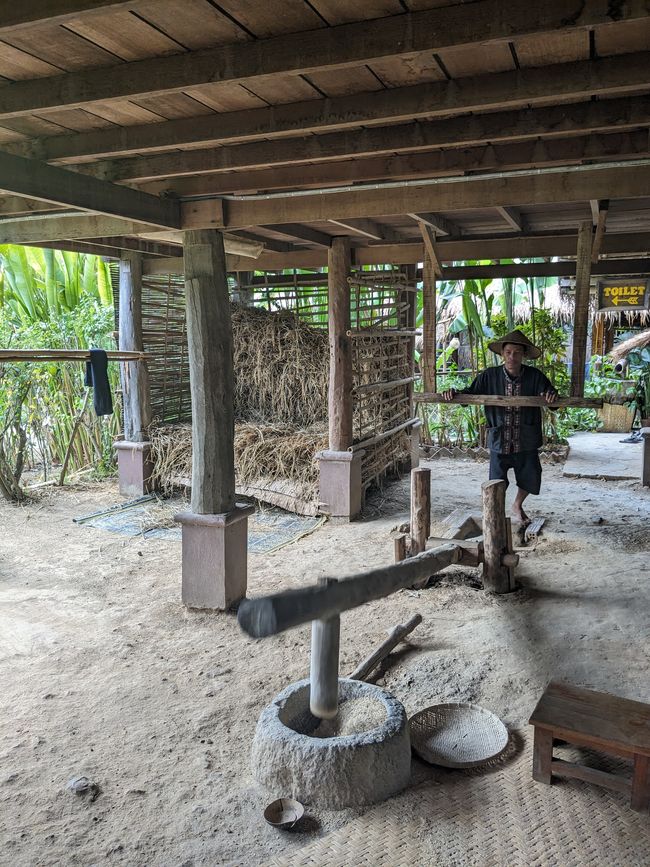
My highlight was finally being able to touch a water buffalo!! These huge animals always look so threatening! But Susan and her child were very sweet!
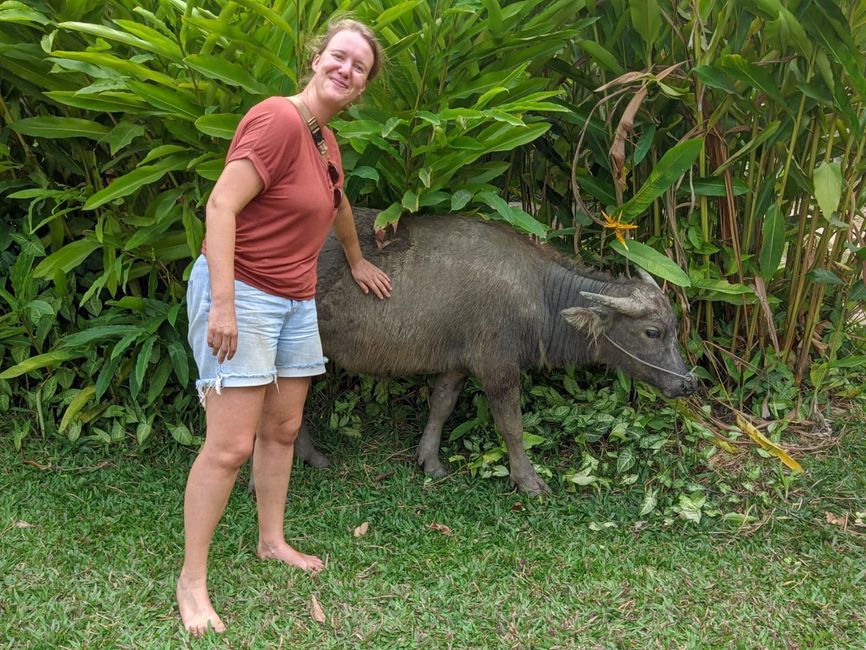
جواب دیں۔
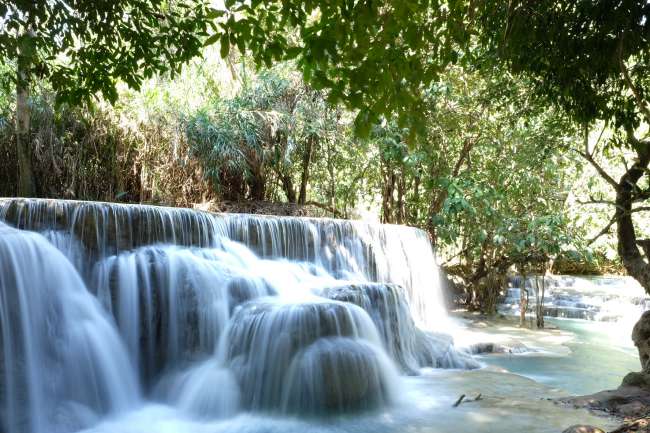
سفری رپورٹس لاؤس


